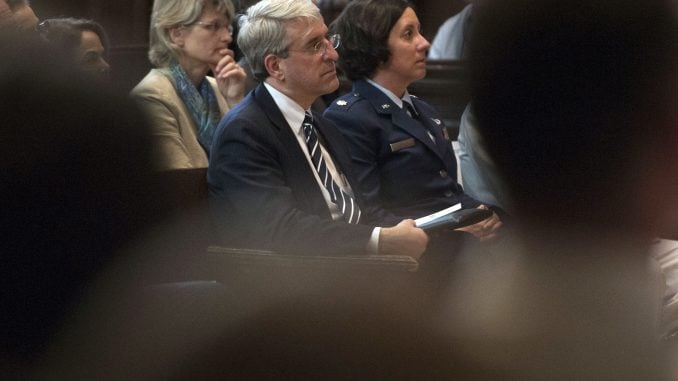
On Feb. 11, Yale President Peter Salovey notified alumni that Yale University’s Calhoun College was no more. Reversing his earlier decision, Salovey caved in to the pressures of political correctness sweeping through American higher education.Yale’s decision in 1931 to honor alumnus John C. Calhoun was never intended as a tribute to Calhoun’s defense of slavery. It was rather a recognition of his stature as a leading American political thinker, senator, and vice president. For much of Calhoun’s career, the tariff not slavery was the battleground issue of greatest national consequence. Calhoun and his Jeffersonian cohorts feared an expanding federal government, which they knew would mean a bloated bureaucracy, abuses by the executive branch, and ever higher tariffs.It was only after the Nullification Crisis of 1833 that Calhoun turned increasingly to a defense of slavery. Because Calhoun’s devotion to Jeffersonian principles became so identified with the defense of slavery and the ultimate dissolution of the union, many overlook his substantial contributions to constitutional history and political philosophy.Modern historians have wrestled with how to evaluate Calhoun. His intellect was beyond dispute, and his honesty and consistency won the unqualified respect of his generation. On his death in 1850, Calhoun was widely eulogized throughout the South, of course, but the tributes of non-Southerners even abolitionists like William Lloyd Garrison were more revealing. Daniel Webster praised him as a “man of undoubted genius and of commanding talent.”Yale’s action is just one of many similar measures by which college administrators seek to cleanse the American scene of any history which does not comport with their sense of 21st century political correctness.Recently, Williams College announced an inquiry into whether to remove their campus “Haystack Monument.” This marker commemorates the 1806 founding of the American Christian missionary movement. Apparently there is rampant concern among Williams faculty that this is an oppressive commemoration of “religious imperialism.”Princeton University has been convulsed by attempts to erase any memory of its most famous president, Woodrow Wilson. The segregationist policies of Wilson’s administration are the sole basis on which his whole career and contributions are to be judged.On several campuses of the University of North Carolina, Charles B. Aycock’s name has recently been removed from buildings. Aycock was an early 20th century governor who had, for several generations, been hailed as the great “education governor.” However, because Aycock’s public education was tainted by the segregationist policies of his day, his name will no longer be remembered.A recent op-ed piece noted the links between many important figures in Yale’s history and slavery. Included in that group was founder and namesake, Elihu Yale. Perhaps Yale University itself will soon be known by another, more acceptable name. There have been demands that the University of Virginia banish patron saint Thomas Jefferson from the campus. At Washington and Lee University, a faculty member has proposed expunging the names of “Washington” and “Lee” from the university. It goes on and on….This is not a new dilemma. Succeeding generations have always looked back on the past through the lens of current political consensus. This has never meant celebrating historical events or philosophies that have fallen into disrepute, but it has meant an ability to evaluate dispassionately and to appreciate the lives and achievements of historical figures by the standards of their own times.Cicero saw the challenge and the danger clearly: “To be ignorant of what occurred before you were born is to remain always a child. For what is the worth of human life, unless it is woven into the life of our ancestors by the records of history.” These words pierce through the veil of today’s political correctness.In this case, Calhoun was an undoubtedly flawed historical figure, but also one of real merit. He deserves to be remembered for his contributions as well as his flaws.Are we so hamstrung by our political correctness that we cannot stand with Henry Cabot Lodge, who spoke these words in 1910 at the dedication of Calhoun’s statue in the Capitol rotunda?: “His statue is here of right. He was a really great man, one of the great figures of our history…. There is no trace of the demagogue about him. He was a bold as well as deep thinker, and he had to the full the courage of his convictions.”Garland S. Tucker III is chairman of Triangle Capital Corporation in Raleigh and author of “Conservative Heroes: Fourteen Leaders Who Changed America- Jefferson to Reagan.”



